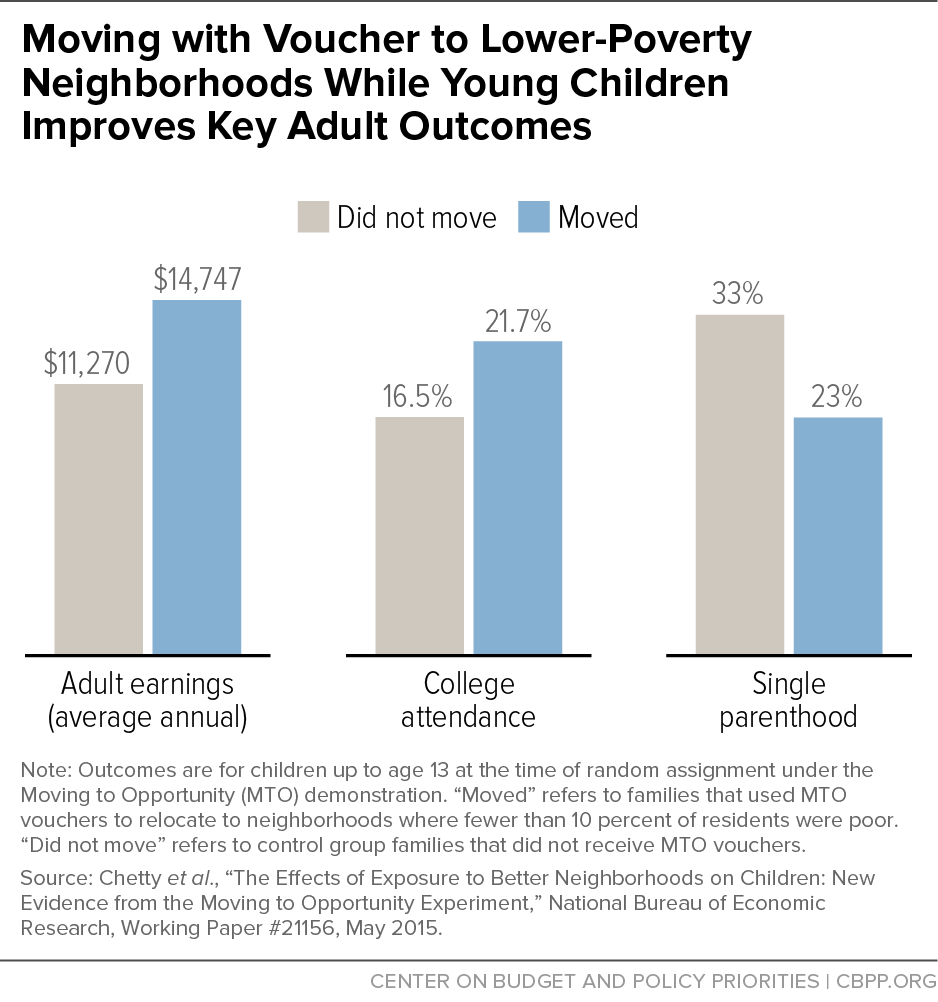BEYOND THE NUMBERS
The President’s 2017 budget includes $15 million for a new Housing Choice Voucher Mobility Demonstration to help public housing agencies in ten regions collaborate on initiatives to help low-income families use existing vouchers to move to higher-opportunity neighborhoods. The one-time funding also would support research to learn what strategies are most cost-effective. Given the powerful new evidence that neighborhoods have a large influence on children’s well-being and long-term success, the proposal deserves Congress’ support.
As we’ve explained, research by Raj Chetty and colleagues finds that low-income children whose families move to better neighborhoods have higher earnings as adults — and are less likely to become single parents and more likely to attend college — than children remaining in less-advantageous neighborhoods (see graph). Also, mothers who use vouchers to move to lower-poverty neighborhoods have significantly lower rates of major depression and diabetes.
We’ve recommended federal policy changes to make it easier for more of the roughly 1 million families with children that have vouchers to use them in safer neighborhoods with good schools. In many metro areas, these neighborhoods are disproportionately in suburban areas, where a different housing agency administers the voucher program.
That means reaching these better neighborhoods requires not only policy changes but also collaboration among agencies, which the President’s proposal is designed to promote.
Another objective of the President’s proposal — learning what mix of strategies is most effective in different types of housing markets — is also important. For example, inducing more landlords to rent to families with vouchers is widely considered essential for improving families’ access to better neighborhoods, but there’s limited evidence of what strategies work best for various types of landlords.
A growing number of agencies are interested in developing or strengthening regional collaborations to support housing mobility but are stymied by the lack of funding to support the related administrative costs. The Obama proposal is a modest but important investment that could improve outcomes for children, make the administration of the housing voucher program more efficient, and inform future housing mobility policy. Congress should include the new funding in upcoming appropriations bills.

